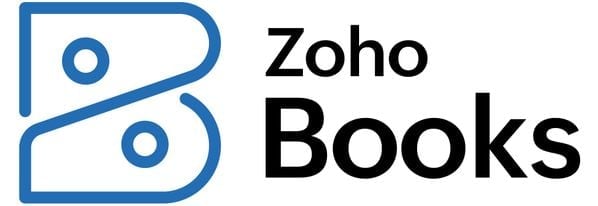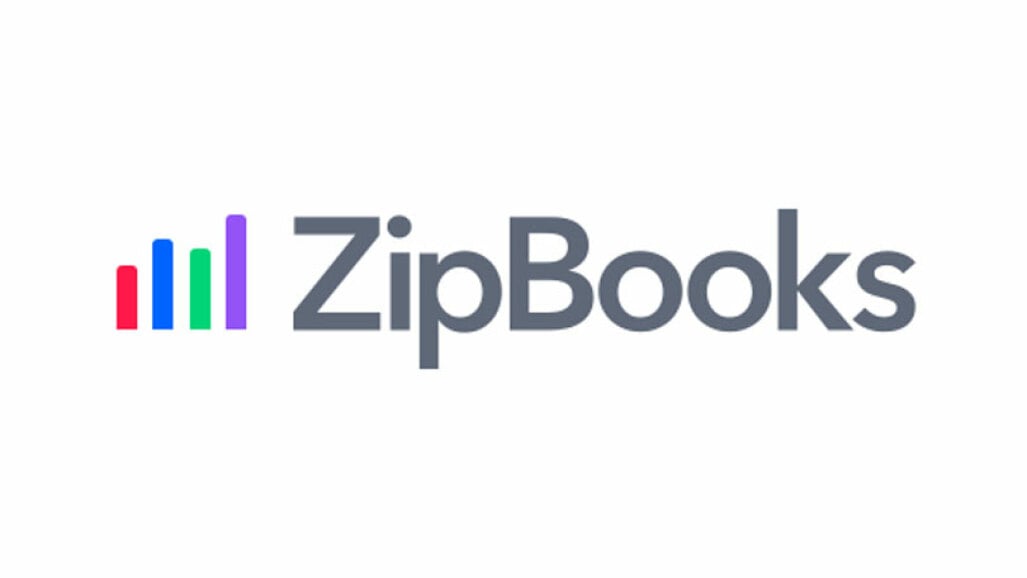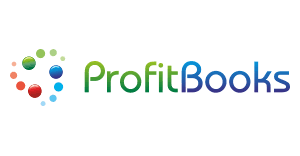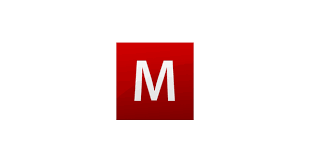Best Free Accounting Software of 2025
Many, or all, of the products featured on this page are from our advertising partners who compensate us when you take certain actions on our website or click to take an action on their website. However, this does not influence our evaluations. Our opinions are our own. Here is a list of our partners and here's how we make money.
NerdWallet independently reviewed 12 free accounting software products, and Zoho Books tops our list.
🏆 Our pick: The best free accounting software
We think Zoho Books is the best option because its free plan is packed with features, like accountant access, transaction categorization rules and up to 1,000 invoices included. Plus, Zoho Books can grow alongside your business if needed (albeit, for a cost).
However, the free plan is only available to businesses that make less than $50,000 in revenue annually. That might be a non-starter for more established businesses.
Zoho Books stands out for its scalability, offering six subscription tiers with extra functionality for different business needs. If that sounds excessive, simpler alternatives like Wave or Brightbook may also be able to get the job done for you. Those options may work if your revenue already disqualifies you for Zoho's free plan. But that may also be a sign it's time to pay for something more advanced (here are our top overall accounting software picks).
Explore all our selections for free accounting software below, why they stand out and how to choose the best fit for your business.
Why trust NerdWallet
| Product | Starting at | Promotion | Learn more |
|---|---|---|---|
 Zoho Books NerdWallet Rating Learn more on Zoho Books' website | $0 Additional pricing tiers (per month): $20, $50, $70, $150, $275. | 14-day free trial of the Premium plan. | Learn more on Zoho Books' website |
 Wave Accounting NerdWallet Rating Learn more on Wave's website | $0 Additional pricing tiers (per month): $16 | N/A | Learn more on Wave's website |
 GnuCash | $0 | N/A | |
 Brightbook | $0 | N/A | |
 ZipBooks | $0 Additional pricing tiers (per month): $15, $35, custom. | 30-day free trial | |
 Odoo NerdWallet Rating | $0 For use of a single app. Additional pricing tiers per user (per month): $31.10, $46.80. | Monthly discount for the first 12 months. | |
 ProfitBooks | $0 Additional pricing tiers (per month): $20. | N/A | |
 Manager | $0 Additional pricing tiers (per month): $59 for cloud edition. | 14-day free trial of cloud edition. |
Looking for options with free trials?
If the options above aren't robust enough to accommodate your business as it grows, consider testing out a paid accounting software product with a free trial. That way, you can try it out before committing. Here are some of our top choices:
QuickBooks Online: Free 30-day trial.
Xero: Free 30-day trial.
FreshBooks: Free 30-day trial.
Zoho Books: Free 14-day trial.
Our top free accounting software picks
Zoho Books
Consider it if: You’re just starting out on your small-business journey but anticipate growth over time. (It's also our top pick for startup accounting software.)
Email support in free plan; phone and chat support in paid plans.
Rich feature set includes excellent invoicing, inventory management, workflow rules and a capable mobile app.
Add accounting widgets to your phone’s home screen; track time using your Apple Watch.
Businesses with more than $50,000 in annual revenue don't qualify for free plan.
Fewer third-party integrations and reports than some competitors.
No plan includes more than 15 users (can add additional users for a fee).
» MORE: Best alternatives to Zoho Books
Wave Accounting
Consider it if: You’re a small business with simple accounting needs that focus mostly on invoicing. Entrepreneurs who appreciate simplicity will also like Wave’s clean, straightforward layout.
Unlimited estimates and invoices on free plan.
Intuitive, customizable invoicing capabilities compete with those of more robust accounting solutions.
Lacks features that quickly growing companies need, like audit trails.
Must subscribe to Wave’s Pro plan or other paid services (payroll, payments, advisor, etc.) to receive customer support from a human
No mileage tracking feature and must use Zapier for third-party integrations.
GnuCash
Consider it if: You’re well-versed in coding (or have a team that is) and prefer to work on a desktop.
Open-source software is customizable, according to your business’s needs.
Run reports — like a balance sheet and profit and loss statement — and display results as a bar chart, pie chart or scatter plot.
Less automated than some competitors. Checkbook-style register can make entering transactions tedious.
Outdated user interface.
Not capable of multiuser access.
Support is only available via chat and email forums and user guides; no dedicated customer support team.
Brightbook

Brightbook
$0
Consider it if: You run your own business and don’t pay employees. Brightbook’s free accounting software is best suited for businesses of one to five employees, so either very small businesses or those who do freelance or contract work.
Send unlimited invoices.
Add unlimited users.
Run basic reports, like a profit and loss statement and tax report.
Does not use double-entry accounting.
Must manually import bank statements.
ZipBooks

ZipBooks
$0
Additional pricing tiers (per month): $15, $35, custom.
Consider it if: You use a single business bank account and want to avoid manually importing its statements into your accounting software each month. ZipBooks’ free plan lets you link one bank account so that transactions automatically flow in.
Send unlimited invoices and add expenses.
Unlimited customer and vendor management.
Free plan includes direct integration with Square and PayPal for payment processing.
Free plan lets users connect to only one bank account.
Limited to one user in the free plan.
Free plan doesn’t include live customer support.
Odoo

Odoo
$0
For use of a single app. Additional pricing tiers per user (per month): $31.10, $46.80.
Consider it if: Your business needs multiple software services, such as CRM, HR, point of sale (POS) or others. Try Odoo’s accounting app on its own for free, and then upgrade to a paid plan for access to Odoo’s full library of apps that smoothly integrate with one another.
Unlimited users.
Vast library of directly integrated apps means the software can grow with your business.
Open-source model encourages regular testing and improvement of the software.
Paid plan is required to access the full list of features for most apps and any additional apps.
Phone support is only available for database emergencies.
ProfitBooks

ProfitBooks
$0
Additional pricing tiers (per month): $20.
Consider it if: You’re a startup retail business on a budget with the need to carefully track and manage inventory.
Run more than 40 financial reports.
Manage inventory.
In-app chat and email support available.
Free plan capped at 25 invoices per month and can track no more than 25 products or services.
Free plan accommodates just one user.
Must manually import bank statements.
Manager

Manager
$0
Additional pricing tiers (per month): $59 for cloud edition.
Consider it if: You prefer to locally install your accounting software on a single machine and don’t need to share access with colleagues or your accountant. If your access preferences change down the line, you can upgrade to Manager’s cloud edition.
Send unlimited invoices.
Run reports, including a balance sheet, profit and loss statement, aged payables, aged receivables, cash flow statement.
Email support available.
Must upgrade to cloud edition to support multiple users.
Must manually import bank statements.
How to choose free accounting software for a small business
Even though you’re not investing money when picking free accounting software , you are investing your time. Consider these factors to make sure you select a solution that can accommodate your business in all of its stages.
Is free software right for your small business?
Free business software can make sense if it covers your financial, payroll, inventory, sales or other needs. These options are typically suited for businesses that are smaller, either in size or revenue, but the best choice will depend on your specific industry, budget and growth trajectory.
Ultimately, software should make it easier to run your business. If a free program doesn't, a paid option will likely be the better choice to save you time and help ensure accuracy.
You can usually opt for free trials of paid versions before committing to get a better idea of how user-friendly and capable the software is. And don’t forget to ask sales representatives about sign-up promotions — paid products typically offer discounts for the first several months.
Methodology: How we determined the best free accounting software
NerdWallet independently reviews free accounting software products before determining our top picks. We collect the data for our software ratings from products’ public-facing websites and from company representatives. Information is gathered on a regular basis and reviewed by our editorial team for consistency and accuracy.
NerdWallet’s free accounting software ratings favor products that are easy to use and include the basics — like invoicing and income and expense tracking — as well as some bonus features, like additional plan tiers for scalability or a mobile app. The best free accounting software received top marks when evaluated across 10 categories and more than 30 subcategories. Learn more about how we rate small-business accounting software.
These ratings are meant to provide clarity in the decision-making process, but what’s best for your business will depend on its growth trajectory and which features you need most. We encourage you to research and compare multiple accounting software products — both free and paid options — before choosing one. NerdWallet does not receive compensation for any reviews. Read our editorial guidelines.








